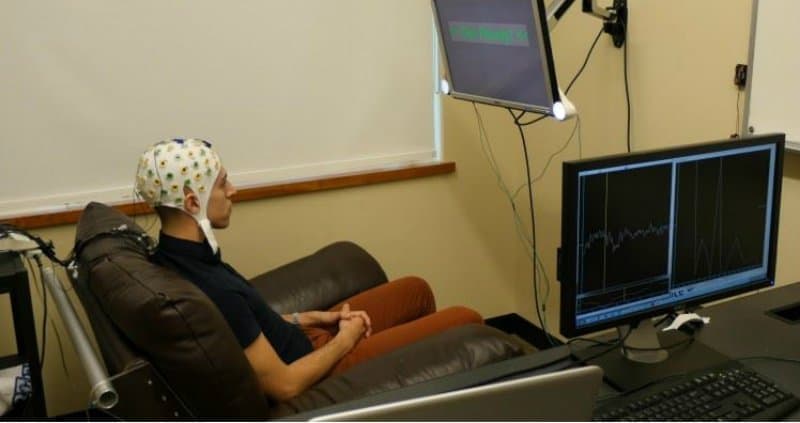
Scientists Prove That Human Brains Can Pass Signals To Each Other
Researchers have come up with an astounding way for one person’s brain to know what another is thinking, without using normal perceptions like sound, touch or sight. A guessing game was set up and two subjects were put in different buildings on a university campus.
The 10 people tested were paired, and then hooked up to an EEG machine, one mile apart from each other. As one person thought of an object, the second subject sent a question, such as “Is it a dog?“, over the Internet. The first subject had to focus his eyes either on an LED light that meant “yes,” or on another light that meant “no.” His brain waves were digitized and sent over the EEG pathway to the person doing the guessing, directly to her visual cortex (bypassing her eyes). The guesser was then able to tell that the answer was “yes,” simply from the flash of light that her brain perceived.

The groundbreaking mind-reading experiments were done at the University of Washington. The possibilities for this form of brain-to-brain communication could be important in so many fields, as well as perhaps providing new ways for people with diseases such as ALS to be able to communicate with loved ones.



